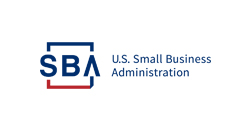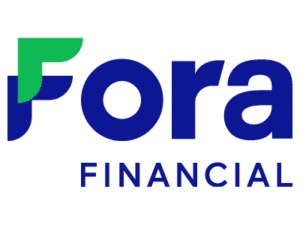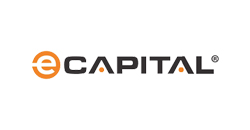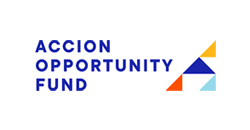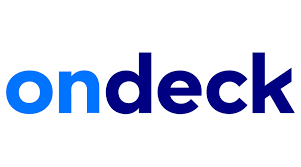Business owners can take out small business loans — generally between $5,000 and $500,000 or more — to finance expenses like payroll financing, inventory, equipment and other costs. Repayment terms could be as short as three months or as long as 25 years. Both traditional financial institutions and alternative online lenders offer small business loans.
Best Small Business Loans in December 2023
Compare top lenders to find the right funding for your business
Small Business Administration: Best for business owners who can’t qualify for traditional financing
- Capped interest rates
- Long repayment terms
- May require a personal guarantee
- Collateral required for loans over $50,000
Why we picked it
The U.S. Small Business Administration (SBA) partners with lenders nationwide to offer financing for businesses unable to qualify for traditional funding. Since the SBA reduces lender risk by guaranteeing up to 75% to 90% of the loan, lenders can offer lower rates and extended repayment terms. Maximum interest rates are based on the current prime rate of 8.5% plus a cap set by the SBA.
OnDeck: Best for short-term loans
- Fair to low credit accepted
- Can help build business credit
- Requires daily or weekly repayments
- Not all industries are eligible
Why we picked it
OnDeck is our top pick for a short-term business loan because you can borrow large amounts, even with a low minimum credit score and a short business history. Depending on your location, you may be able to access your funds the same day you’re approved. Additionally, you can build your business credit by making on-time payments with an OnDeck loan.
However, OnDeck’s rates tend to run high — with an average 55.8% APR for its term loan.
Read our OnDeck review.
What is a small business loan?
Small business loans help new and established companies access capital for various business needs. With business financing, you can purchase inventory, invest in new equipment, build an expansion or cover unexpected expenses.
Traditional banks, online lenders and government agencies all offer small business loans.
The best business loan for your company depends on how much you need, your business’s qualifications and how quickly you need the funds.
On this page
- What is a small business loan?
- Types of small business loans
- Additional business funding options
- Business loan requirements
- Getting a business loan in three easy steps
- How to compare small business loans
- How we chose the best small business loans
- Best small business summary
- Frequently asked questions
Types of small business loans
Term loans
Business term loans provide a lump sum of cash upfront, paid with interest in fixed monthly or weekly installments. Short-term business loans have repayment terms of a few months to a year or more and are commonly available from online lenders. Long-term business loans, usually offered by traditional brick-and-mortar banks, can last 10 years or more.
Line of credit
Similar to a credit card, a business line of credit is a revolving form of funding that requires you to pay interest only on the amount you borrow. Lines of credit are best for recurring expenses like rent and inventory purchases or seasonal fluctuations in income..
Equipment financing
Also known as equipment loans, equipment financing enables businesses to purchase heavy machinery, computers, vehicles or other necessary equipment to operate the business. The equipment acts as collateral for the loan.
Commercial real estate loans
Commercial loans help large companies to purchase materials, finance equipment or build property for business uses. Commercial real estate loans are similar to a home mortgage, but often require a higher upfront down payment.
SBA loans
SBA loans are guaranteed by the U.S. Small Business Administration (SBA), offering long repayment terms with comparatively low interest rates.The SBA 7(a) loan provides up to $5 million for various business purposes, while the504/CDC loan is more commonly used for purchasing equipment or real estate. You’ll apply with a bank or online lender, not directly through the SBA.
Microloans
Microloans are loans for $50,000 or less. The SBA offers microloans, along with several nonprofit or community organizations. Microloans are often geared towards startups or underrepresented business owners, such as women or people of color.
Working capital loans
Working capital loan is an umbrella term for financing that covers short-term operating expenses, like payroll or cash flow gaps. Working capital loans can come in various forms, like working capital lines of credit, term loans and cash advances.
Invoice factoring
Invoice factoring enables businesses to sell unpaid invoices to a factoring company in exchange for a cash advance. This may be a good option for cash-strapped businesses or businesses with poor or limited credit, but you can typically get only 70% to 90% of your invoice face value. It can also get expensive, with factoring rates going as high as 8.25%.
Additional business funding options
Merchant cash advance
A merchant cash advance also gives you a lump sum of cash upfront, but the advance is against your future sales. Because of this, the merchant cash advance is repaid through a preset percentage of daily or weekly credit card sales. This type of funding can deliver cash fast, but it can be a very expensive method of borrowing.
Credit cards
You probably have one or more personal credit cards, but business credit cards can help track business expenses, unlock travel or cash-back rewards or just help monitor employee spending. To avoid paying a high annual percentage rate, make sure to pay off your statement balance in full by the due date.
Small business grants
The federal government, state governments and private corporations and foundations offer grants for small businesses. Because grants are free money that usually doesn’t need to be repaid, competition can be quite stiff. There are also minority business grants and women-owned business grants.
Crowdfunding
Business crowdfunding is when you ask family, friends and the general public for donations to kickstart your business. This method helps you test out a business idea and may appeal most to startups or other businesses struggling to get funding. Just be aware that crowdfunding platforms may charge a fee.
Personal loans
Personal loans for business may be easier to get if you struggle to meet the strict eligibility criteria for a business loan. Because this relies on your personal credit and income, your personal credit and assets are at risk. And personal loans won’t help you build business credit, nor can you claim the loan interest as a qualified business tax deduction.
Bootstrapping
Bootstrap financing is when you use your own financial resources to fund your business. Startup businesses may use bootstrapping to get off the ground, but you risk not recouping your investment if your business fails to thrive.
Business loan requirements
When you apply for a business loan, lenders want to know that your business and credit history are stable. Common business loan requirements include reviewing your credit profile, time in business, capacity to take on debt and any collateral you may have.
-
TIME IN BUSINESS
In general, your business will be in a stronger position to borrow if you can prove you have a track record of solid revenue over the past two years. This is more attractive to a lender than a company with spotty revenue over the past six months.
-
CREDIT SCORE
Lenders use your credit score to determine your riskiness as a borrower. In most cases, you’ll need a good to excellent credit score in the mid-600s or higher to get a business loan, although certain lenders allow scores as low as 500. Your business credit score should be at least 80, although some lenders may rely on just your personal score when reviewing your loan application.
-
CASH FLOW
A business cash-flow projection shows when money is collected, when cash goes out and what’s left. Lenders typically like to see that you understand where your business’s money is going each month.
-
COLLATERAL
Collateral is an asset that lenders can legally seize if you can’t make payments. Common forms of collateral including real estate, equipment, accounts receivable and even cash. Some business owners use their personal assets — including their homes — as collateral on a business loan.
-
FIXED CHARGE COVERAGE RATIO
Your business’s fixed-charge coverage ratio measures how well your company can pay its fixed expenses, including any debts and interest you have. Lenders use this metric to help determine whether or not to approve a business loan application.
-
WORKING CAPITAL
Your working capital refers to the available money you have to fund your company’s day-to-day operations. You can calculate your working capital by subtracting the business’s debt liabilities due within a year from current assets that you can convert to cash.
How to compare small business loans
In order to pick the best business loan, make sure to compare the following:
- Interest rate: Is the business loan interest rate variable or fixed? Does the lender charge a factor rate? How much will you pay in interest charges over the life of the loan?
- Repayment term: When do payments start? Do you prefer daily, weekly or monthly payments?
- Time to fund: How long does the application process take? Keep in mind that the quickest business loans aren’t always the most affordable.
- Additional fees: Read your loan contract’s fine print for extra fees, such as origination fees, late charges and business loan prepayment penalties.
Before closing your loan
After approval, the closing process involves reviewing documentation that will determine the terms of your selected loan. A business loan agreement is a legally binding contract that dictates your interest rate and repayment schedule.
Ensure you thoroughly understand what the lender is asking of you and the implications these terms have on your business’s financial future. After you sign, you’ve agreed to everything in the contract — including what happens when you make late payments or default.
How we chose the best small business loans
We reviewed the leading small business lenders to determine the overall best 13 small business loans. To make our list, lenders must meet the following criteria:
- Maximum amounts no less than $150,000
- Funding available within two weeks of approval
- No more than two years in business required
- Personal credit score requirements below 680
- Transparent rates and repayment terms
We also favor lenders that report to all major credit bureaus, offer reliable customer service and provide unique perks to customers, like free business coaching.
Best small business summary
- SBA: Best for SBA loans
- OnDeck: Best for short-term loans
- Funding Circle: Best for long-term loans
- American Express Business Line of Credit: Best for line of credit
- Credibly: Best for working capital
- Taycor Financial: Best for equipment financing
- Wells Fargo: Best for traditional bank
- Fundbox: Best for startups
- Fora Financial: Best for bad credit
- National Funding: Best for fast financing
- Headway Capital: Best for unsecured loans
- eCapital: Best for invoice factoring
- Accion Opportunity Fund: Best for microloans
Frequently asked questions
Yes, bad credit business loans are available for business owners with personal credit scores as low as 500. However, lenders may offer you a higher interest rate if you want to borrow money and have a lower credit score.
A personal guarantee requires you as the business owner to be personally responsible for the company’s debt in case of default. A personal guarantee is pretty common on small business loans because it lowers the risk for a lender. But as the business owner, it may limit any protections your business structure offers.
Online lenders may be the best option to get a startup business loan with no revenue. Unlike brick-and-mortar banks that often have stricter eligibility requirements, alternative lenders typically require only a few months in business. Other options beyond new business loans include crowdsourcing, self-funding or grant funding.
Each lender will have its own criteria based on the loan type. In general, you need a personal FICO Score of at least 500 and a business credit score of 80 to get a small business loan. But, the lowest business loan interest rates are typically reserved for borrowers with higher credit scores. If this doesn’t fit your business, online lenders may be more lenient with credit score requirements.
Most lenders look for minimum monthly or annual revenue when you apply for a loan. Many traditional banks do not publish their minimum revenue requirements, but online lenders tend to be more transparent. It’s common to expect a minimum annual revenue requirement of $50,000 or more for unsecured loans. However, you may be eligible for a business loan with a lower annual revenue if you can provide collateral.
If you were rejected for a business loan, revisit the reason why. Focus on improving your personal credit and business credit scores. If you haven’t operated in business long enough, wait a bit. In the meantime, consider a small business credit card or a personal loan to access capital for any immediate business needs.
